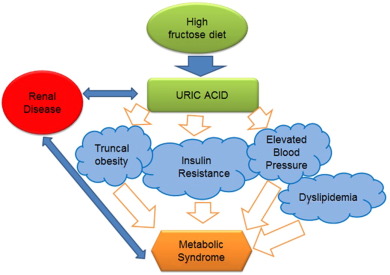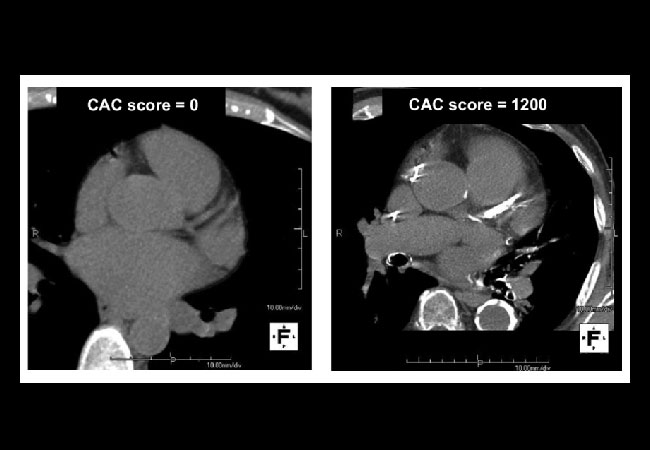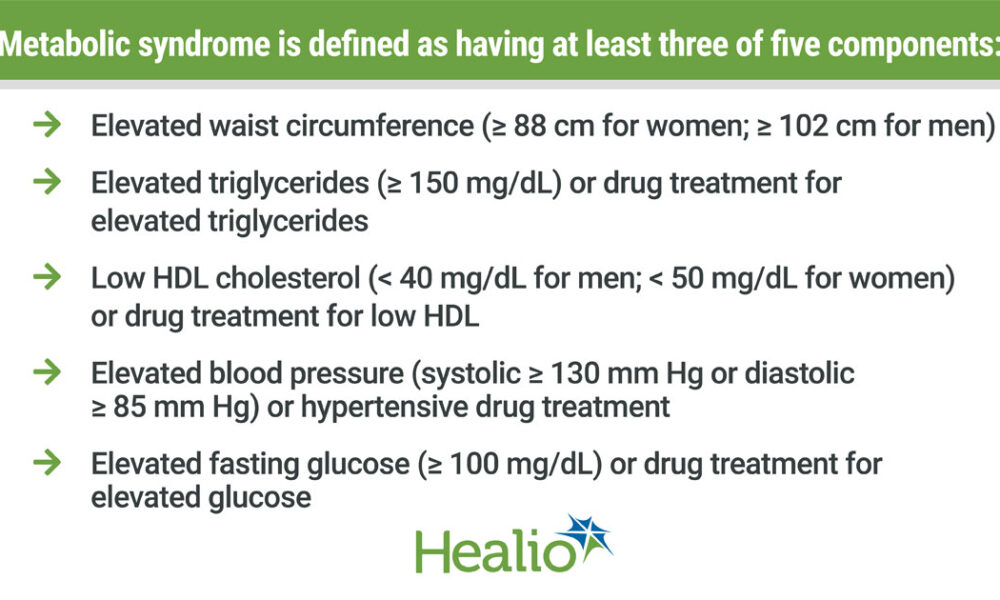- Home
- About
- Portfolio
Crush the Match – Medical School and Residency Platform
Food¢ense – Curbing Childhood Obesity and Food Waste
HealthStack – Shared and Jailed HIPAA Hosting $50
Marta Care – Let Us Help When You Can’t
MD Idea Lab – We Build Prototypes for Doctors
Nervcell – The Healthcare Web Browser
Patient Keto – Personalized Keto Medicine and Telehealth
SwipeChart – Rapid EMR Interface
Treatment Scores – Quantifying the Science of Medicine
Treatments – Diagnosed. Now What?
VIDRIO – Google Glass and EMR Interface
- Blog
- Contact
- Home
- Warp Core Health
- Blog
- Metabolic Health
Category: Metabolic Health
Why Your Doctor Should Start Paying Attention to Your Uric Acid Levels
- June 29, 2023
- Stephen Fitzmeyer, MD
- No Comments
Uric acid, a natural waste product created during the breakdown of purines in the body, has long been associated with a painful condition known as gout. However, recent research has shown that elevated uric acid levels can have broader health implications beyond gout, indicating the importance of monitoring and managing uric acid levels in routine medical care. This article explores the reasons why your doctor should start paying attention to your uric acid levels and how adopting a ketogenic diet can help lower uric acid levels and promote metabolic health.
Gout Prevention and Management: Gout is a form of arthritis characterized by sudden, severe joint pain, swelling, and redness. It occurs when uric acid crystals accumulate in the joints, leading to inflammation. Monitoring uric acid levels can help identify individuals at risk of developing gout and enable early intervention. By proactively managing uric acid levels through lifestyle modifications and medications, doctors can help prevent recurrent gout attacks and minimize joint damage.
Uric Acid as an Independent Risk Factor: Elevated uric acid levels have been linked to various health conditions independent of gout. Research suggests that high uric acid levels may contribute to the development of hypertension, cardiovascular disease, chronic kidney disease, and metabolic syndrome. By monitoring and managing uric acid levels, doctors can potentially identify individuals at increased risk for these conditions and implement preventive measures accordingly.
Kidney Health Assessment: The kidneys play a vital role in filtering and excreting uric acid from the body. Persistently high uric acid levels can strain the kidneys and increase the risk of kidney stones and kidney disease. Monitoring uric acid levels can serve as an indicator of kidney function and help doctors assess overall kidney health. Identifying and addressing elevated uric acid levels can potentially slow down the progression of kidney disease and reduce the risk of related complications.
Uncovering Underlying Health Conditions: High uric acid levels may indicate an underlying health condition such as metabolic disorders, insulin resistance, or certain types of cancer. Identifying and treating these conditions in their early stages can significantly improve outcomes. Regular monitoring of uric acid levels can provide doctors with a valuable diagnostic clue, prompting further investigations and ensuring timely intervention.
Lifestyle Modification and Patient Education: Monitoring uric acid levels can empower doctors to educate their patients about lifestyle modifications that can help maintain healthy levels. By discussing dietary choices, weight management, alcohol consumption, and the importance of staying hydrated, doctors can assist individuals in making informed decisions and adopting healthier habits to control uric acid levels.
Ketogenic Diet and Uric Acid Levels: Recent studies have indicated that adopting a ketogenic diet, which is low in carbohydrates and high in healthy fats, can contribute to lowering uric acid levels and improving metabolic health. The ketogenic diet promotes weight loss, reduces insulin resistance, and enhances the body’s ability to burn fat for fuel. These metabolic changes can lead to a decrease in uric acid production and improved uric acid clearance from the body.
By recommending a ketogenic diet to patients with elevated uric acid levels, doctors can potentially help them achieve metabolic health and reduce the risk of developing gout, hypertension, cardiovascular disease, and other metabolic disorders. However, it’s important to note that dietary changes should be tailored to individual needs and medical history, and consultation with a healthcare professional is crucial before starting any new dietary regimen.
In conclusion, monitoring uric acid levels goes beyond the management of gout. With growing evidence linking elevated uric acid levels to various health conditions, it is essential for doctors to pay attention to their patients’ uric acid levels during routine medical care. By doing so, doctors can prevent and manage gout, identify individuals at risk for other health conditions,
assess kidney health, uncover underlying medical issues, and promote overall metabolic health. Adopting a ketogenic diet, in conjunction with regular monitoring of uric acid levels, can be a valuable tool in achieving these goals.
It is important to emphasize that any dietary changes, including the adoption of a ketogenic diet, should be done under the guidance of a healthcare professional. They can assess the individual’s medical history, evaluate potential risks and benefits, and provide personalized recommendations. Additionally, it’s crucial to consider the overall nutritional balance and adequacy of the diet to ensure that all essential nutrients are obtained.
In summary, by recognizing the broader health implications of elevated uric acid levels and monitoring them regularly, doctors can play a crucial role in preventing and managing gout, identifying underlying health conditions, and promoting optimal metabolic health. Alongside other lifestyle modifications, such as dietary changes, adopting a ketogenic diet can be a valuable approach to lower uric acid levels and improve overall health outcomes. Working in partnership with a healthcare professional, individuals can take proactive steps toward achieving better health and well-being.
Physician Informaticist
Founder of Patient Keto
Founder of Warp Core Health
Founder of Jax Code Academy, jaxcode.com
Connect with Dr. Stephen Fitzmeyer:
Twitter: @PatientKeto
LinkedIn: linkedin.com/in/sfitzmeyer/
The Nutritional Powerhouse: Why Steak Triumphs Over Kale, Fruits, and Vegetables for Keto
- June 16, 2023
- Stephen Fitzmeyer, MD
- No Comments
By Stephen Fitzmeyer, MD
Introduction:
Following a ketogenic diet requires careful consideration of the perfect meal that meets all your nutritional needs. While kale, fruits, and vegetables are often lauded for their vitamin and mineral content, it is crucial to recognize the exceptional nutritional value that steak brings to the table. In this article, we will explore how steak, packed with specific vitamins and minerals, surpasses other food options for those adhering to a keto lifestyle.
Vitamin B12:
Steak, especially grass-fed beef, is an exceptional source of vitamin B12, crucial for energy production, brain health, and the formation of red blood cells. A 3-ounce serving of steak provides approximately 158% of the recommended daily intake (RDI) of vitamin B12, while kale, fruits, and vegetables fall short in this aspect.
Choline:
Choline is an essential nutrient important for brain function, liver health, and muscle movement. While kale and certain vegetables contain choline, steak surpasses them significantly. A 3-ounce serving of steak delivers around 32% of the RDI of choline, making it a superior choice for meeting your choline requirements.
Omega-3 Fatty Acids:
Omega-3 fatty acids are crucial for heart health, brain function, and reducing inflammation. While fatty fish like salmon are renowned for their omega-3 content, certain cuts of steak, particularly grass-fed beef, provide a respectable amount. A 3-ounce serving of steak offers approximately 84 milligrams of omega-3 fatty acids, making it a viable option for keto enthusiasts.
Protein:
A cornerstone of the ketogenic diet is consuming an adequate amount of protein while minimizing carbohydrate intake. Steak, with its high protein content, outshines kale, fruits, and vegetables. A 3-ounce serving of steak typically supplies around 22 grams of protein, making it an excellent choice for meeting protein needs.
Iron:
Iron is essential for transporting oxygen throughout the body and preventing anemia. Steak, particularly red meat, is an exceptional source of heme iron, which is more easily absorbed than non-heme iron found in plant-based sources. A 3-ounce serving of steak contains approximately 15% of the RDI of iron, offering a considerable advantage over kale, fruits, and vegetables.
Magnesium, Phosphorus, and Potassium:
Steak provides a notable amount of minerals crucial for various bodily functions. A 3-ounce serving of steak typically supplies around 8% of the RDI of magnesium, 20% of the RDI of phosphorus, and 7% of the RDI of potassium. These percentages surpass what kale, fruits, and vegetables offer in terms of these specific minerals.
Riboflavin, Niacin, B6, and Thiamine:
Steak contains an array of B vitamins necessary for energy production, brain health, and overall well-being. A 3-ounce serving of steak offers approximately 20% of the RDI of riboflavin, 36% of the RDI of niacin, 24% of the RDI of vitamin B6, and 11% of the RDI of thiamine. These percentages highlight the superiority of steak over kale, fruits, and vegetables in terms of these specific B vitamins.
Selenium and Zinc:
Steak is an excellent source of the minerals selenium and zinc, both of which are crucial for immune function and overall health. A 3-ounce serving of steak typically provides around 48% of the RDI of selenium and 36% of the RDI of zinc.
Conclusion:
In conclusion, when it comes to following a ketogenic diet, steak proves to be an exceptional choice that surpasses kale, fruits, and vegetables in terms of specific vitamins and minerals. Packed with vitamin B12, choline, omega-3 fatty acids, protein, iron, magnesium, phosphorus, riboflavin, niacin, B6, thiamine, selenium, zinc, and potassium, steak offers a comprehensive nutritional profile that aligns perfectly with the principles of a keto lifestyle.
By incorporating steak into your keto meal plan, you can ensure an abundant supply of these essential nutrients, supporting energy production, brain function, immune health, and muscle maintenance. The bioavailability of these vitamins and minerals in steak further enhances their utilization by the body, maximizing their benefits.
It is important to note that while fruits and certain vegetables may not be emphasized in a strict ketogenic diet due to their carbohydrate content, it is still essential to include non-starchy vegetables that are low in carbs, such as leafy greens, to ensure an adequate intake of fiber, micronutrients, and antioxidants.
As always, consulting with a healthcare professional or registered dietitian is recommended to personalize your keto diet plan and ensure it meets your individual needs and goals.
With the exceptional nutrient profile of steak, it can be a valuable addition to your ketogenic journey, providing not only delicious flavor but also a wide array of essential vitamins and minerals that support your overall health and well-being while maintaining ketosis.
Physician Informaticist
Founder of Patient Keto
Founder of Warp Core Health
Founder of Jax Code Academy, jaxcode.com
Connect with Dr. Stephen Fitzmeyer:
Twitter: @PatientKeto
LinkedIn: linkedin.com/in/sfitzmeyer/
Understanding the CAC Test and Achieving a Score of 0 with Ketogenic Diet and Intermittent Fasting
- April 10, 2023
- Stephen Fitzmeyer, MD
- No Comments
By Stephen Fitzmeyer, MD
Introduction:
Coronary artery calcification (CAC) test is a non-invasive test that measures the amount of calcium in the coronary arteries. The test uses a CT scanner to detect calcium deposits in the coronary arteries, which is an indication of the presence of plaque that can cause heart disease. A high score on the CAC test is associated with an increased risk of heart disease and other related conditions. However, research has shown that a combination of a ketogenic diet and intermittent fasting can help achieve a CAC score of 0, indicating optimal heart health.
CAC Test and Its Importance:
The CAC test measures the amount of calcium in the coronary arteries and is used to assess an individual’s risk of developing heart disease. The test uses a CT scanner to detect calcium deposits in the walls of the coronary arteries. These deposits are a sign of atherosclerosis, which is the buildup of plaque in the arteries that can lead to heart disease. The CAC score is a measure of the amount of calcium in the coronary arteries, and a high score indicates an increased risk of heart disease.
Achieving a CAC Score of 0 with a Ketogenic Diet and Intermittent Fasting:
Research has shown that a combination of a ketogenic diet and intermittent fasting can help achieve a CAC score of 0, indicating optimal heart health. A ketogenic diet is a high-fat, low-carbohydrate diet that promotes the use of fat as the primary source of energy. This diet has been shown to reduce the risk of heart disease by lowering triglycerides and increasing HDL cholesterol levels.
Intermittent fasting is a pattern of eating that involves periods of fasting and periods of eating. This eating pattern has been shown to improve insulin sensitivity, reduce inflammation, and lower blood pressure, all of which can contribute to optimal heart health.
Studies have shown that a combination of a ketogenic diet and intermittent fasting can help reduce the risk of heart disease and achieve a CAC score of 0. One study found that a ketogenic diet and intermittent fasting for six months resulted in a significant reduction in the CAC score in participants with high initial scores. Another study showed that a low-carbohydrate diet combined with intermittent fasting for eight weeks resulted in a significant reduction in triglycerides and an increase in HDL cholesterol levels.
Conclusion:
The CAC test is an important tool for assessing an individual’s risk of developing heart disease. However, a combination of a ketogenic diet and intermittent fasting can help achieve a CAC score of 0, indicating optimal heart health. These lifestyle changes have been shown to reduce the risk of heart disease, improve insulin sensitivity, reduce inflammation, and lower blood pressure. Therefore, incorporating a ketogenic diet and intermittent fasting into your lifestyle can lead to optimal heart health.
References:
1. Lu DY, Lu TR, Jackson NC, et al. Effects of a ketogenic diet combined with exercise on the CAC score and atherogenic index of plasma in adults with overweight and obesity. Diabetes Metab Syndr Obes. 2021;14:3105-3116. doi:10.2147/DMSO.S326587
2. Ganesan K, Habboush Y, Sultan S. Intermittent fasting: the choice for a healthier lifestyle. Cureus. 2018;10(7):e2947. doi:10.7759/cureus.2947
3. Yokoyama Y, Takachi R, Ishihara J, et al. Association between a low-carbohydrate diet and coronary artery calcification in Japanese men and women: a cross-sectional study
——
Author: Stephen Fitzmeyer, M.D.
Physician Informaticist
Founder of Patient Keto
Founder of Warp Core Health
Founder of Jax Code Academy, jaxcode.com
Connect with Dr. Stephen Fitzmeyer:
Twitter: @PatientKeto
LinkedIn: linkedin.com/in/sfitzmeyer/
Achieving Optimal Metabolic Health: Criteria and Strategies
- April 6, 2023
- Stephen Fitzmeyer, MD
- No Comments
By Stephen Fitzmeyer, MD
Metabolic health is an essential component of overall health, and it is crucial to understand the criteria necessary to achieve optimal metabolic health. An individual is considered to have optimal metabolic health if their markers meet the following levels: A1C less than 5.7%, blood pressure lower than 120/80 mmHg, waist circumference of 0.5 or less, triglycerides less than 150 mg/dL, and HDL cholesterol 60 mg/dL (1.6 mmol/L) or above.
On the other hand, an individual may be diagnosed with metabolic syndrome if they fail to meet three of the above criteria. Metabolic syndrome is a cluster of conditions that increase the risk of developing chronic diseases, such as diabetes, heart disease, and stroke. It is estimated that over one-third of American adults have metabolic syndrome, emphasizing the need to address this issue.
To achieve optimal metabolic health, a combination of lifestyle modifications and medical interventions is necessary. The strategies to improve metabolic health include regular physical activity, healthy dietary choices, maintaining a healthy weight, smoking cessation, and managing stress. Additionally, medical interventions such as medication management of blood pressure and blood glucose levels may be necessary for some individuals.
Incorporating these strategies into daily life can significantly improve metabolic health and reduce the risk of developing chronic diseases. It is essential to work with healthcare providers to establish personalized goals and develop a plan to achieve them. Regular monitoring of metabolic markers is also crucial to ensure that the interventions are effective.
In conclusion, achieving optimal metabolic health requires a multifaceted approach that includes lifestyle modifications and medical interventions. By meeting the criteria outlined above and incorporating strategies to improve metabolic health, individuals can significantly reduce the risk of developing chronic diseases and improve their overall health and well-being.
Author: Stephen Fitzmeyer, M.D.
Physician Informaticist
Founder of Patient Keto
Founder of Warp Core Health
Founder of Jax Code Academy, jaxcode.com
Connect with Dr. Stephen Fitzmeyer:
Twitter: @PatientKeto
LinkedIn: linkedin.com/in/sfitzmeyer/
- ‹ Previous
- 1
- 2
Recent Posts
- Protected: Warp Core Health: Building a Custom AI Model for Transforming Healthcare
- The Intersection of Healthcare, AI, Clinical Informatics, and Machine Learning
- Accessing Siloed EMR Systems with FHIR: Connecting to Multiple EMRs
- How AI and Informatics Are Transforming Healthcare
- How AI Can Transform Healthcare Applications
Categories
- ApoB
- Artificial Intelligence
- Autophagy
- Biochemistry
- Biomedical Informatics
- Biostatistics
- Blood Glucose
- CAC
- Carbs
- CCD
- CDA
- Clinical Informatics
- Coding Bootcamp
- Coronary Artery Disease
- COVID-19
- Cybersecurity
- Data Science
- Diabetes
- Diet
- EHS
- EMR
- Epidemiology
- Evidence Based Medicine
- Fats
- FHIR
- Fiber
- Generative AI
- Global Health
- Health Administration
- Health Informatics
- Health IT
- HIPAA
- HL7
- Hyperglycemia
- Hypoglycemia
- ICD 10
- Intermittent Fasting
- Ketogenic Diet
- Machine Learning
- Macronutrients
- MCT Oil
- Metabolic Health
- Metabolic Syndrome
- Minerals
- Mitochondria
- MySQL
- Neurology
- Nutritional Ketosis
- Nutritional Neurology
- Nutritional Psychiatry
- PHP
- PHR
- Programming
- Prompt Engineering
- Proteins
- Prototypes
- Public Health
- Python
- Recipes
- Sleep Health
- Stroke
- Uric Acid
- Vegan and Vegetarians
- Vitamin D
- Vitamin K2
- Vitamins




